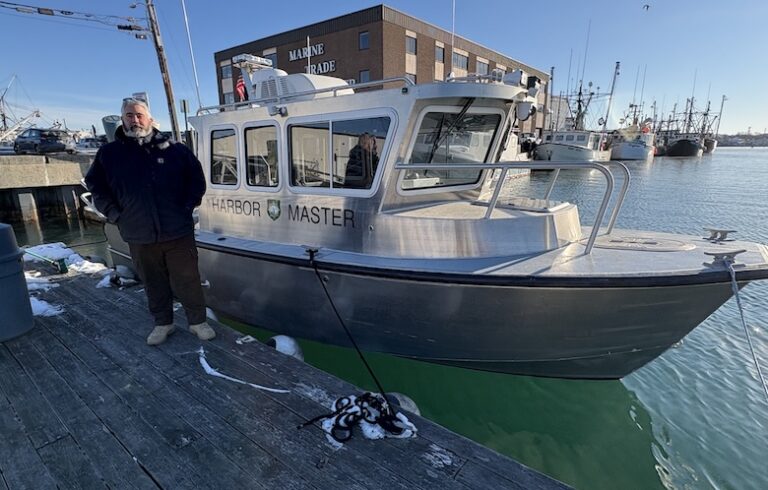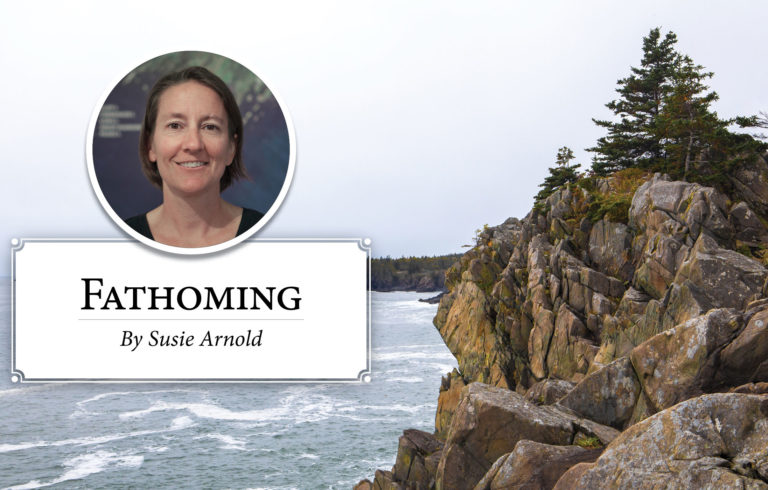Reflections is written by Island Institute Fellows, recent college grads who do community service work on Maine islands and in coastal communities through the Island Institute, publisher of The Working Waterfront.
Recently, I wrote an incorrect answer to a question in front of a group of students. We were learning how to work with variable lists in Javascript and how the rules we established for variables still applied with variable lists. I placed an element in the wrong index and didn’t catch it until one of my students raised his hand and said my answer didn’t match his.
I brushed it off, made a joke about not reading carefully, and carried on with the lesson. Inside, I felt ashamed and incompetent. This had nothing to do with the student who corrected me. If anything, I was glad he understood the lesson well enough to catch my mistake. Nevertheless, self-doubt loomed over me, long after we’d moved on from the lesson.
When I began working at the Vinalhaven School as an Island Institute Fellow, I was a novice when it came to the skills in my job description. My goal was to support technology opportunities at school, helping teachers use their technology effectively, and coaching a robotics team—not exactly skills I learned while studying English and studio art as an undergrad.
Just as necessary are learning to problem solve, think critically, and find joy in learning.
However, most of my jobs after college relied on teaching myself new skills, whether those skills were website design or database management. While I lacked immediate experience, I could compensate with my proclivity to learn from scratch.
Within my first year at school, it was clear that an in-person computer science class would help students and my role expanded to teaching, despite having no prior experience. I took the summer to learn as much as I could about teaching computer science, taking a class to familiarize myself with the curriculum.
The stakes are high in education. Teachers are not only trying to provide students with the knowledge they need to be successful, but they are also teaching habits and ways of thinking.

Just as necessary as learning to read or do math are learning to problem solve, think critically, and find joy in learning. While there is great privilege in being a part of this process, there is also the fear that students may not come away with something meaningful.
When I don’t know the answer in front of my students, my fear is that it says something about who I am as a teacher. Why am I trusted to teach this class? Do my students think of me as an effective teacher? Do I even believe I’m capable of this?
Not too long ago, my fiancé and I got into a disagreement over repairing our duck coop. The door to the coop fell off during a storm and I wanted to fix the door so it wouldn’t fall off again. My plan was to reset the door frame, attach stronger hinges, and add wood reinforcements to parts of the door.
But we were still in the midst of winter and the weather meant the door would continue to warp with the thawing and refreezing, along with the ground shifting. My fiancé thought it might work best if we just reattached the door so the ducks would be safe until winter’s end.
Despite how unrealistic my plan was, I was frustrated and restless knowing the door wasn’t exactly the way I wanted it to be.
I approached teaching like I approached the coop door. I wanted my teaching to be the best it could possibly be before standing in front of students. The fact of the matter is I was never going to be a perfect teacher after one summer. I could pour myself into studying, practicing, and planning to be as prepared as possible; however, it’s impossible to expect I’d achieve a level of teaching that takes a career to be great at.
Perhaps the best I could do was try my hardest, dedicate myself to lifelong learning, and be courageous enough to not know the answer.
In a few weeks, once the ground thaws more, my fiancé and I are planning to repair the coop door to my liking. Until then, I’m grateful my ducks are safe.
Kaylin Wu works with the Vinalhaven school on technology integration from pre-K through 12th grade and fosters a growing Lego robotics club and other technology centered after-school experiences.





